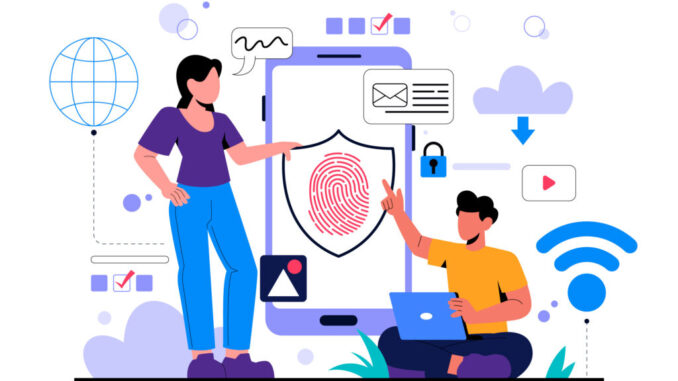
ICT on Society , In today’s digital age, Information and Communication Technology (ICT) plays a pivotal role in shaping our world. From revolutionizing education to improving healthcare, ICT has transformed every aspect of our lives. Let’s dive into how ICT affects society and the responsibilities that come with using it.
You can get better practical knowledge by watching the given videos related to the topics mentioned in the syllabus of this lesson Grade 9 ICT – By clicking on the relevant categories, you can see the description of the lesson related to the topic
-

06 වන පාඩම | තොරතුරු හා සන්නිවේදන තාක්ෂණය සහ සමාජය - 02 වන කොටස | 09 වන ශ්රේණිය | Grade 09 ICT
-

06 වන පාඩම | තොරතුරු හා සන්නිවේදන තාක්ෂණය සහ සමාජය - 04 වන කොටස | 09 වන ශ්රේණිය | Grade 09 ICT
-

06 වන පාඩම | තොරතුරු හා සන්නිවේදන තාක්ෂණය සහ සමාජය - 01 වන කොටස | 09 වන ශ්රේණිය | Grade 09 ICT
-

06 වන පාඩම | තොරතුරු හා සන්නිවේදන තාක්ෂණය සහ සමාජය - 03 වන කොටස | 09 වන ශ්රේණිය | Grade 09 ICT
Related resources and links to this lesson
How ICT Has Changed Society
ICT has brought numerous changes to society, making processes faster, easier, and more efficient. Key areas influenced by ICT include:
1. Education
- Online learning platforms provide access to quality education for students everywhere.
- Digital tools like interactive whiteboards and educational apps make learning more engaging.
- Schools can manage student records and communication efficiently using ICT tools.
2. Healthcare
- ICT has enabled telemedicine, allowing doctors to diagnose and treat patients remotely.
- Digital records improve patient care and management.
- Medical research benefits from advanced data analysis and collaboration tools.
3. Commerce
- Online shopping platforms connect businesses and customers worldwide.
- Digital payment methods like mobile wallets and online banking have replaced traditional transactions.
- ICT enables businesses to analyze customer data and improve their services.
4. Public Services
- E-governance makes government services more accessible to citizens.
- Online portals simplify tasks like paying utility bills or applying for documents.
- ICT improves transparency and efficiency in government operations.
The Digital Divide
While ICT has brought significant advancements, not everyone benefits equally. The digital divide refers to the gap between those who have access to ICT resources and those who do not.
Causes of the Digital Divide:
- Lack of infrastructure in rural areas.
- Financial barriers preventing access to devices and internet services.
- Limited digital literacy skills.
Impact of the Digital Divide:
- Unequal access to education and job opportunities.
- Limited participation in the digital economy.
- Social and economic inequalities are widened.
E-Waste: A Growing Concern
As ICT devices become more common, the improper disposal of e-waste poses a significant threat to the environment and living beings.
What is E-Waste?
E-waste refers to discarded electronic devices like computers, mobile phones, and televisions.
Why is E-Waste Dangerous?
- Contains toxic materials such as lead and mercury.
- Improper disposal pollutes soil, water, and air.
- Harmful to human health and wildlife.
The 3R Concept: Reduce, Reuse, Recycle
To manage e-waste effectively, we must follow the 3R concept:
1. Reduce:
- Avoid unnecessary purchases of electronic devices.
- Opt for durable and energy-efficient products.
2. Reuse:
- Donate old devices to those in need.
- Repurpose devices for different uses.
3. Recycle:
- Use certified e-waste recycling centers.
- Recycle components to minimize environmental harm.
ICT and Career Opportunities
The field of ICT offers numerous job opportunities for those with the right skills and qualifications.
Popular ICT Careers:
- Software Developer: Creating applications and software programs.
- Network Administrator: Managing and maintaining computer networks.
- Data Analyst: Analyzing data to help businesses make informed decisions.
- Web Designer: Developing and maintaining websites.
- Cybersecurity Specialist: Protecting systems from online threats.
How to Prepare for an ICT Career:
- Gain proficiency in programming languages and software tools.
- Stay updated with the latest technological advancements.
- Pursue certifications in areas like networking, cybersecurity, and data analysis.
Balancing ICT Use and Responsibility
While ICT has improved our lives, it is important to use it responsibly:
- Avoid over-reliance on digital devices.
- Educate yourself about online safety and digital ethics.
- Take part in initiatives to bridge the digital divide in your community.
Conclusion
ICT has revolutionized society, bringing significant advancements in education, healthcare, commerce, and public services. However, challenges such as the digital divide and e-waste demand our attention. By using ICT responsibly and promoting sustainable practices, we can ensure its benefits reach everyone while minimizing harm to the environment.
FAQs
1. What is ICT?
ICT stands for Information and Communication Technology, which involves using technology to store, share, and manage information.
2. What is the digital divide?
The digital divide refers to the gap between individuals or communities with access to ICT resources and those without access.
3. Why is e-waste harmful?
E-waste contains toxic materials that can pollute the environment and harm living beings if not disposed of properly.
4. What is the 3R concept?
The 3R concept stands for Reduce, Reuse, and Recycle, which are strategies to manage waste sustainably.
5. What careers are available in ICT?
Careers in ICT include software development, network administration, web design, data analysis, and cybersecurity.


Leave a Reply
You must be logged in to post a comment.